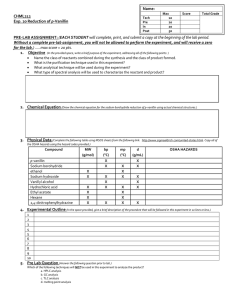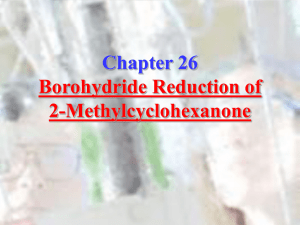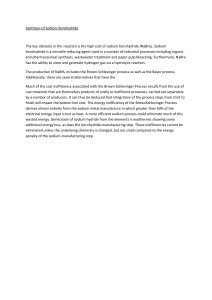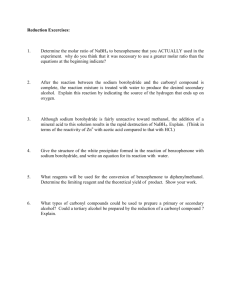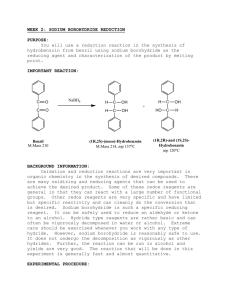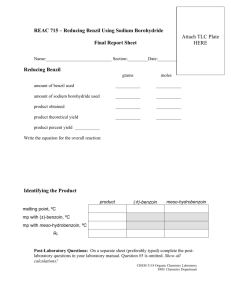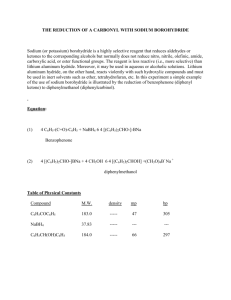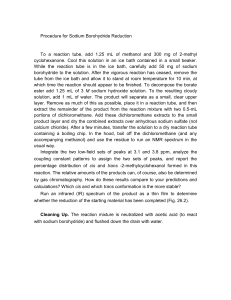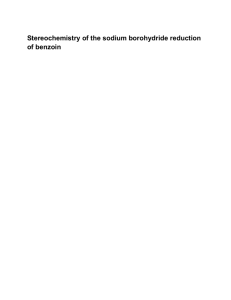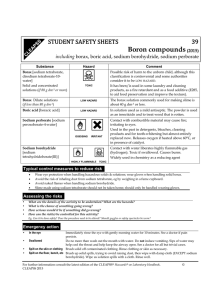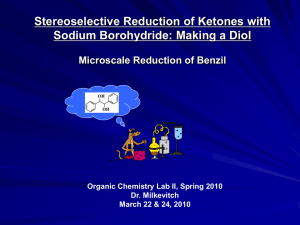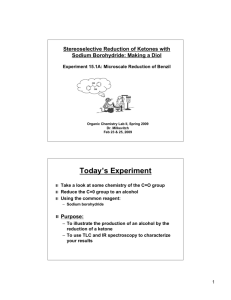After the reaction between sodium borohydride and the
advertisement
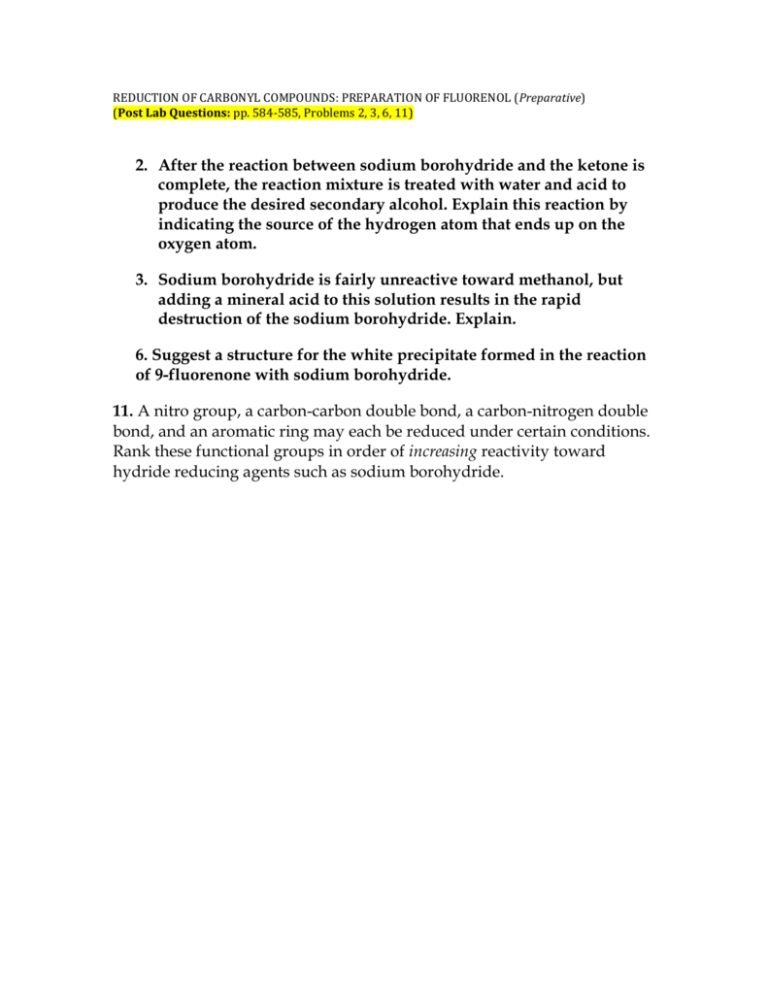
REDUCTION OF CARBONYL COMPOUNDS: PREPARATION OF FLUORENOL (Preparative) (Post Lab Questions: pp. 584-585, Problems 2, 3, 6, 11) 2. After the reaction between sodium borohydride and the ketone is complete, the reaction mixture is treated with water and acid to produce the desired secondary alcohol. Explain this reaction by indicating the source of the hydrogen atom that ends up on the oxygen atom. 3. Sodium borohydride is fairly unreactive toward methanol, but adding a mineral acid to this solution results in the rapid destruction of the sodium borohydride. Explain. 6. Suggest a structure for the white precipitate formed in the reaction of 9-fluorenone with sodium borohydride. 11. A nitro group, a carbon-carbon double bond, a carbon-nitrogen double bond, and an aromatic ring may each be reduced under certain conditions. Rank these functional groups in order of increasing reactivity toward hydride reducing agents such as sodium borohydride.
